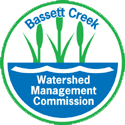News
Nature Not Cancelled - Spring Arriving on Time
Sat, Apr 4, 2020While society grapples with the disruptive and sometimes tragic situations surrounding the COVID-19 pandemic, one sector of our world is providing a refuge from our troubles: nature. The birds are arriving from their winter homes, early vegetation is beginning to sprout, and the ice continues retreating from the lakeshore’s edge. Soon warm breezes and spring rains will bring more and more life to our backyards, parks and natural areas, as nature awakens from its winter rest.
Minnesota’s “Stay at Home” order (Executive Order 20-20) explicitly allows individuals to get outside, be in nature, enjoy parks and recreational lands, and to walk, hike, bike, hunt, or fish. What a wonderful opportunity to discover (or rediscover) a love of the outdoors! Perhaps when the crisis is over, one lasting impact will be a reconnection of people to their environment, and a new understanding of how our everyday actions impact the natural world.
As we are forced to slow down and take a pause from life’s normally rushed activities, we have an opportunity to find peace and calm in the delicate unfurling of baby spring leaves and the smell of soil after a rain. We have time to be still and quiet, to be observant and perhaps witness the coming of spring as we’ve never done before.
There is another benefit to the world slowing down – our air is getting cleaner. In China, Europe, and in large cities across the United States, our lower activity level is resulting in fewer greenhouse gas emissions. While this situation might not last, it’s clear that our daily lives really do make a difference, and that changing our collective behaviors really could move the needle on addressing climate change. And perhaps this crash course on social distancing will have a long-term effect of more meetings via video conferencing, and less traveling across town to meet in person.
If you’re itching for something meaningful to do, there are many small actions we can take as individuals that collectively add up to improved natural resources – like waters and habitats. Just think if we all planted just a corner of our yards with native flowers and plants for birds, bees, and butterflies, what a difference that could make! Since 80% of land in Minnesota is privately owned, it’s really up to each of us to help reverse the alarming trend of declining biodiversity and native habitats.
Similarly, we can all play a role in cleaning up our lakes and streams! Most water pollution comes from “non-point sources,” meaning the pollution isn’t coming from a single pipe (or “point source”) it’s coming in little bits all over. Leaves, soil, grass clippings, pet waste, salt, and other pollutants often wash off hard surfaces right into our waterbodies.Keeping driveways, streets, parking lots and sidewalks clean means the debris won’t end up creating algae blooms and harming aquatic life in our favorite lake or stream.And, since the pollution is so widespread, no city or agency can be everywhere all the time sweeping up after each one of us. So, while you’re out for a walk, bring a broom and a bucket to clean off storm drains and sweep up the street in front of your house. If you want these actions to be officially “counted,” register to adopt your storm drain adopt-a-drain.org!
In the wake of this strange time when we are all working to “flatten the curve” of the pandemic, we can also flatten the curves of various environmental problems and seize this opportunity to make those small, everyday changes that can add up to a big impact. We are all in this together, so let’s work together to care for not only each other, but the beautiful world that we have.

